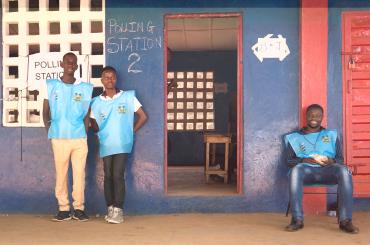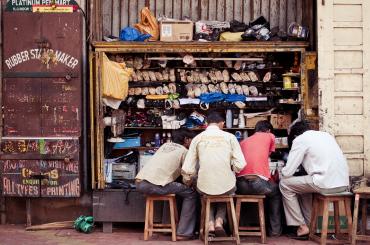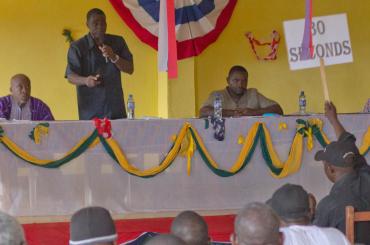
politics
-

How should political parties choose candidates?
An experiment in Sierra Leone varied how much say voters, compared to party officials, had in selecting candidates for Parliamentary elections, and sheds light on which systems of leadership selection are most effective
-

Promoting economic development through electoral design
When electoral rules encourage politicians to secure a broader base of support, politicians provide public goods more broadly
-

Public sector absenteeism, politics and patronage in Pakistan
Politics and patronage exacerbate public sector absenteeism, limiting the efficacy of reform measures
-

Political power-sharing, firm entry, and economic growth: Evidence from India
Politicians who share power impose checks and balances on each other, improving local governance and leading to better economic outcomes.
-

How not to disengage from a conflict: Evidence from NATO’s war in Afghanistan
Strategic miscalculation during Afghanistan’s first security transition may have contributed to its current resurgence of violence
-

Can taxation stimulate political participation? Evidence from the Democratic Republic of Congo
A property tax campaign in the city of Kananga increased tax compliance and stimulated citizen demand for inclusive and accountable government
-

When does politics work for development?
Political interference in the bureaucracy is generally viewed with suspicion. However, in India bureaucrats implement MNREGA much better in places where politicians are able to claim credit for improvements.
-

Female leadership
Affirmative action in local Indian politics increased graduation rates for girls and reduced the aspiration gap between boys and girls
-

Who debates, who wins? Debate participation and electoral outcomes in Liberia
An intervention in Liberia increased electoral debate participation and led citizens to engage more in the election